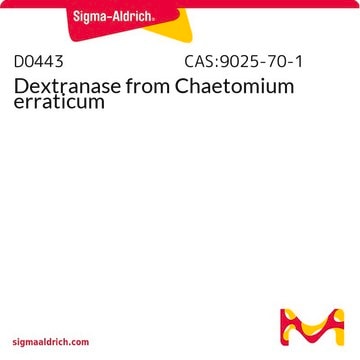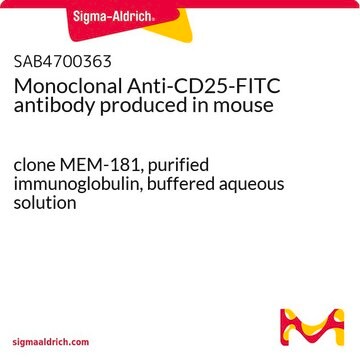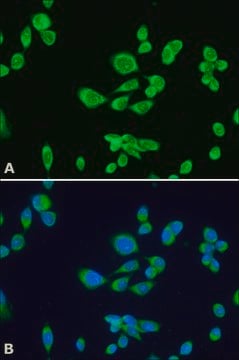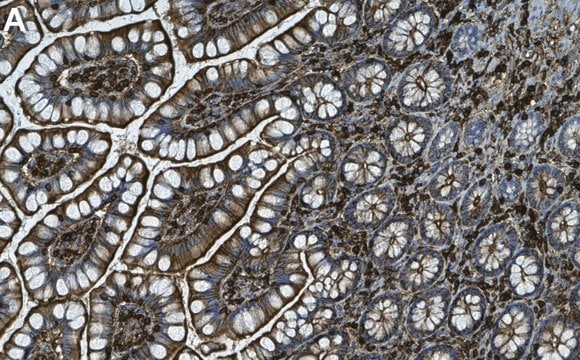추천 제품
생물학적 소스
rat
Quality Level
항체 형태
purified antibody
항체 생산 유형
primary antibodies
클론
BM8.1, monoclonal
제품 라인
ColorWheel®
양식
lyophilized
분자량
calculated mol wt 102.13 kDa
종 반응성
mouse
포장
antibody small pack of 25 μL
환경친화적 대안 제품 특성
Waste Prevention
Designing Safer Chemicals
Design for Energy Efficiency
Learn more about the Principles of Green Chemistry.
sustainability
Greener Alternative Product
기술
flow cytometry: suitable
동형
IgG1κ
에피토프 서열
Extracellular domain
단백질 ID 수납 번호
UniProt 수납 번호
호환성
for use with ColorWheel® Dyes (Required, sold separately)
환경친화적 대안 카테고리
배송 상태
ambient
저장 온도
2-8°C
타겟 번역 후 변형
unmodified
유전자 정보
mouse ... Adgre1(13733)
일반 설명
특이성
면역원
애플리케이션
Evaluated by Flow Cytometry in Mouse bone marrow cells.
Flow Cytometry Analysis: Staining of one million mouse bone marrow cells was performed using 5 μL of a 1:1 mixture of Cat. No. CWA-1005, Anti-Mouse F4/80 (BM8.1) ColorWheel® Dye-Ready mAb and Cat. No. CW-PE ColorWheel® activated Phycoerythrin (PE) Dye or an equivalent amount of PE-conjugated Rat IgG2b isotype control.
Note: Actual optimal working dilutions must be determined by end user as specimens, and experimental conditions may vary with the end user
표적 설명
물리적 형태
재구성
저장 및 안정성
법적 정보
면책조항
적합한 제품을 찾을 수 없으신가요?
당사의 제품 선택기 도구.을(를) 시도해 보세요.
관련 제품
Storage Class Code
11 - Combustible Solids
WGK
WGK 2
Flash Point (°F)
Not applicable
Flash Point (°C)
Not applicable
가장 최신 버전 중 하나를 선택하세요:
관련 콘텐츠
ColorWheel® 유세포 분석 항체와 염료를 통해 유세포 분석 설계에 자유를 누리십시오. ColorWheel® 유세포 분석 포트폴리오는 품질의 저하 없이 유세포 분석 워크플로를 간소화할 수 있도록 단순화와 유연성을 염두에 두고 설계되었습니다.
활성 필터
자사의 과학자팀은 생명 과학, 재료 과학, 화학 합성, 크로마토그래피, 분석 및 기타 많은 영역을 포함한 모든 과학 분야에 경험이 있습니다..
고객지원팀으로 연락바랍니다.








